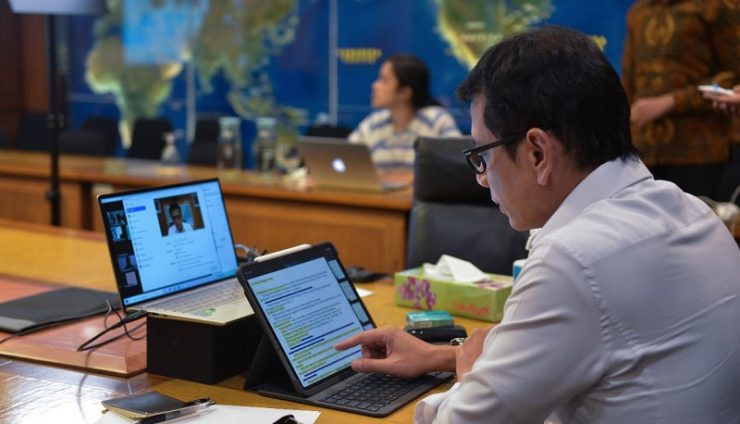THE Ministry of Tourism & Creative Economy has taken several strategic steps to overcome the impact of COVID-19 for the tourism and creative economy industry in the country.
According to Minister of Tourism and Creative Economy, Wishnutama Kusubandio during a virtual discussion with the Forum for Tourism & Creative Economy Journalists Jakarta, explained that the Ministry of Tourism prepared three stages to respond to the impact of COVID-19 namely emergency response recovery and normalization.
“In this emergency response phase we provide support to health workers to prepare accommodation, food, and transportation. Because health workers are now at the forefront in handling COVID-19 cases so they don’t become widespread. For that we need extraordinary support from various parties. In addition to coordinating with line ministries and various related parties in taking steps to support the Indonesian tourism industry,” Wishnutama said.
Wishnutama also explained that in the second phase, namely recovery, the Tourism Ministry will identify and coordinate with other Ministries to identify the impact in detail due to the COVID-19 outbreak. Furthermore, it provides support to tourism & creative economy industry in terms of employment, utilities, levies relief, loan relaxation, pre-employment card utilization, to online training for Human Resources.
Lastly, Minister Wishnutama continued, that is the normalization stage, which is to re-promote both inside and outside the country, to prepare incentives for the tourism industry as well as creative economic industry.
Tourism & Creative Economy Ministry will also re-arrange involvement in international agendas and national event calendars to support tourism activities. Furthermore, re-fixing the destination, especially in terms of security and safety, human resources, and the attractiveness of each destination.
“And what we have to learn later is how psychologically the different travelers are. There is a trauma with this COVID-19 outbreak. There is also the view of a traveler because for too long at home already want to hurry out to travel. We want the psychology and views of travelers like this to develop,” he noted.
In the initial post-recovery steps later, Wishnutama stressed the importance of first mobilizing domestic tourists.
“Of course for the initial stage we move foreign tourists first. I hope our journalist friends, together we are optimistic and help foster a positive attitude until the pandemic is over. Of course, for the tourism sector and the creative economy to return to normal in a faster time,” he added.
Tourism Ministry has also now opened a channel for complaints and reporting through call centers and websites to report on conditions in the tourism sector and the creative economy and establish an Integrated Crisis Center. All of that is to collect input, data, complaints, and so on as a basis for consideration of policy making in efforts to deal with the current emergency response situation.
“The Integrated Crisis Center will collect information on the tourism industry and creative economy affected by COVID-19 throughout the region. Then, together with the Regional Government, a tourism sector and creative economy mitigation plan will be implemented in the face of the COVID-19 pandemic. It also opened an online forum to solicit input from tourism industry and stakeholders as a material for consideration in formulating policies and further steps,” he noted.
In the virtual discussion with Tourism Journalists, also present as guest speaker Chairperson of the Indonesian Hotel and Restaurant Association (PHRI) Hariyadi Sukamdani and Chairperson of the Indonesian Travel Bureau Association (ASITA) Nunung Rusmiati.
Hariyadi Sukamdani explained, from the data entering PHRI there are currently 1,266 hotels that were forced to close in 31 provinces. Although there are no specific data on the number of employees affected by hotel closures, he estimates that more than 150 thousand employees are on leave outside the responsibility of the company.
“We are constrained in the data collection, many restaurants have not yet entered. Data for workers who meet the standard for assistance until now has only been around 74,101. We predict that the data will exceed the data of current employees,” he added.
Meanwhile, Chairperson of the Association of Indonesian Travel Agencies (ASITA) Nunung Rusmiati explained that so far, it continues to monitor all travel agents of its members, numbering around 7,000 in 34 provinces. And continue to coordinate with the entire ASITA throughout Indonesia to monitor the development of the impact of this COVID-19 outbreak.
“So from now on there has been a reduction in employee salaries by 25%. Even travel has said, if conditions like this continue to be up to 50%. Praise to God, there are a number of trips that don’t reduce employees or don’t lay off,” she concluded. [traveltext.id]
















